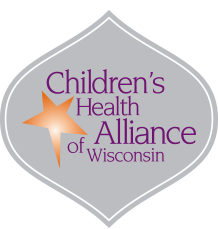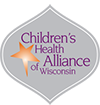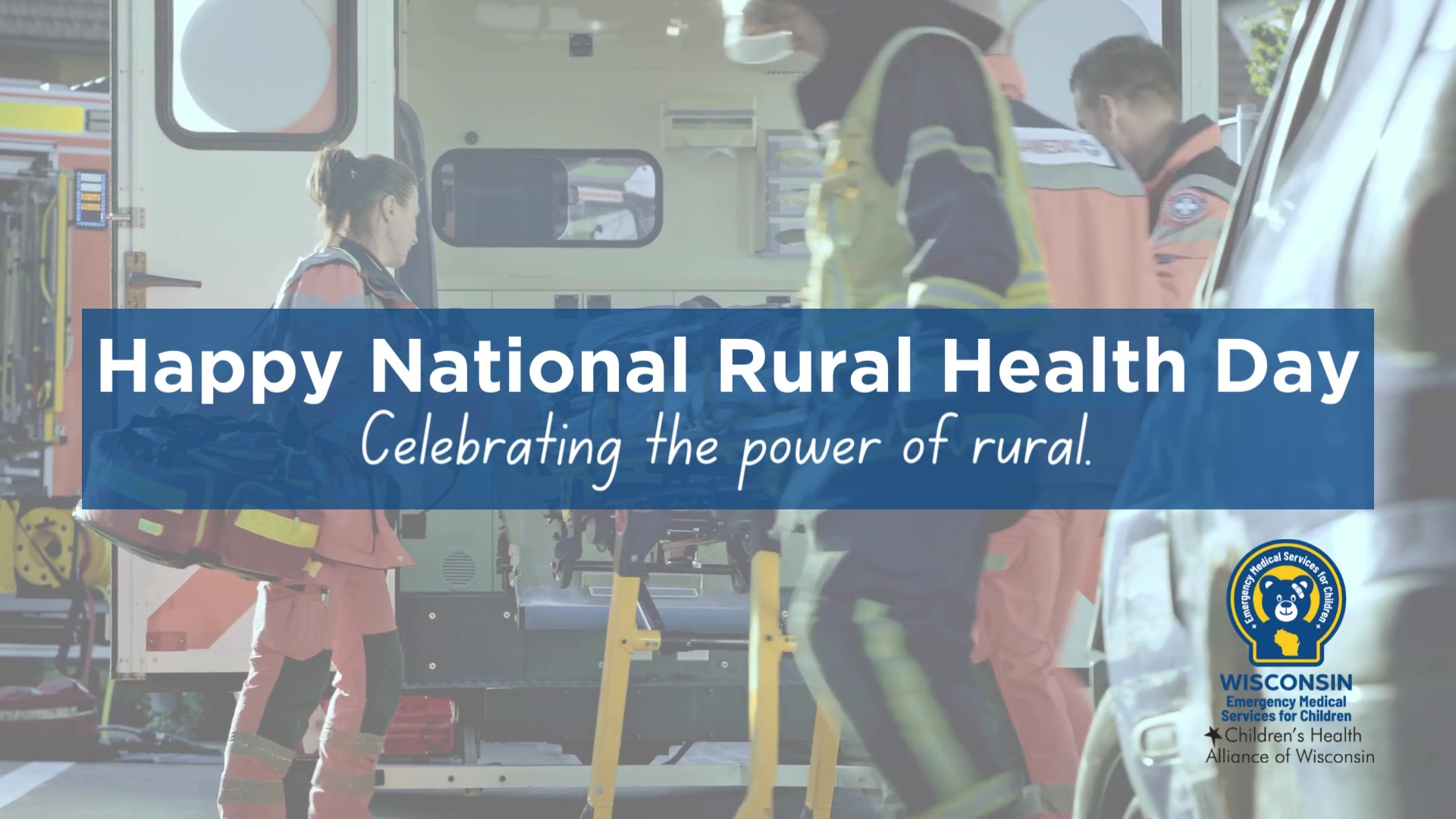Written by Brittany Farrell
National Rural Health Day is Thursday, November 16, 2023! Established in 2011 by the National Organization of State Offices of Rural Health (NOSORH), the day highlights the efforts of rural health care providers, State Offices of Rural Health and other advocates to address unique health care challenges faced by rural citizens such as accessibility issues and lack of providers.
In rural Wisconsin, volunteer emergency medical services (EMS) agencies are likely to be first on scene. Children are also likely to receive initial emergency care in a critical access hospital. Critical access hospitals provide essential emergency care in rural communities but often have limited pediatric resources. Approximately 43% of Wisconsin’s emergency departments (EDs) are located in counties designated as rural, based on classification by the Wisconsin Office of Rural Health.
Wisconsin Emergency Medical Services for Children (WI EMSC) recognizes the critical role EMS and ED personnel play in ensuring children receive proper care, regardless of geographic location. WI EMSC provides training, resources and support to each of the state’s 134 EDs and more than 725 EMS agencies, many of whom are located in rural areas. These programs directly impact children and their families statewide.
Wisconsin Pediatric Readiness Program for Community EDs
Pediatric Readiness is a program to help Wisconsin EDs be more prepared to treat children by providing access to training, guidelines and resources to improve care. WI EMSC works with EDs to address gaps such as personnel, quality improvement, safety measures and polices so that children receive better care closer to home. Communities have already directly benefited from this program, including an instance of a child who received care at SSM Health Ripon Community Hospital.
ED Pediatric Recognition
ED Pediatric Recognition identifies Wisconsin EDs that meet the guidelines in the American Academy of Pediatrics’ Policy Statement, Pediatric Readiness in the Emergency Department. In order to receive ED Pediatric Recognition, an ED needs to meet equipment, policies/procedures and pediatric care coordination requirements.
Pediatric Emergency Care Coordinators
Pediatric Emergency Care Coordinators (PECCs) are EMS or ED team members who ensure staff are familiar with pediatric policies and protocols, promote quality improvement programs that ensure children receive the best care possible and make sure pediatric equipment is stocked. We offer virtual quarterly meetings for ED PECCs, featuring presentations on best practices related to topics applicable to EDs statewide. Over 250 EMS agencies and 30 EDs currently have individuals serving in the PECC role – WI EMSC is committed to increasing the number of PECCs in the state.
Comfort kits
Comfort kits are a resource created and distributed to emergency responders that contain items to comfort and soothe children during a pediatric emergency. Hundreds of comfort kits have been disseminated to EMS agencies and EDs statewide.
Children with Special Health Care Needs Preparedness for Emergencies
Children with Special Health Care Needs Preparedness for Emergencies (CAPE) is a program which partners schools and EMS agencies in efforts to better prepare for emergencies involving children with special health care needs.
Prehospital Pediatric Readiness
Prehospital Pediatric Readiness is a program aimed at making sure EMS agencies are prepared to treat pediatric patients as recommended by national standards and evidence-based guidelines. Use the Prehospital Pediatric Readiness EMS Agency Checklist to learn if your EMS agency is ready to care for children. WI EMSC works with agencies to address gaps in their pediatric resources and be prepared to treat children in critical situations.


